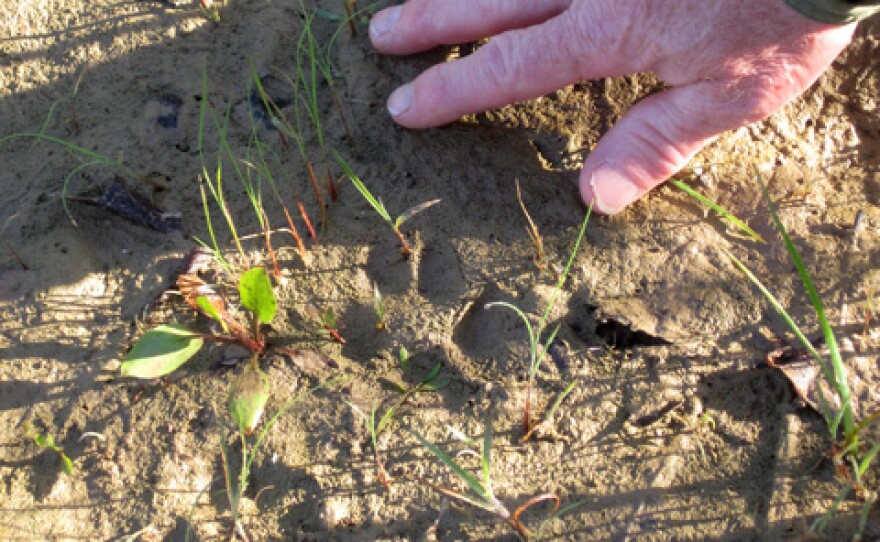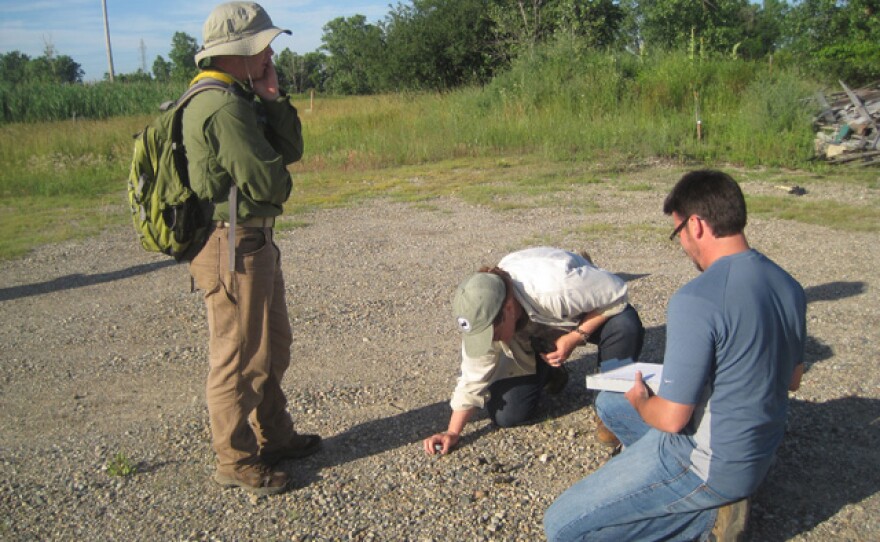Coyotes have been moving into a lot of American cities. Here in Michigan, you could potentially see coyotes almost anywhere. But researchers don't know a whole lot about the state’s urban coyotes.
A small research team from Wayne State University hopes to change that. They're trying to figure the animals out. They want to find out how many coyotes are living in cities. And they want to know what they’re eating, and how they survive.
A few weeks ago, one day just after dawn, I met up with the research team at the side of a road in Oakland County. We crossed the road to get to a grassy, undeveloped piece of land. The group fanned out to look for evidence of coyotes... that is: tracks, and scat.
After just a few steps, we found tracks.
Bill Dodge is a PhD student at Wayne State, and he’s the team leader.
“Coyote tracks are a lot neater than dog tracks, with coyotes usually the trail pattern is pretty straight as if they know where they’re going," says Dodge.
A minute later, there was more evidence in the form of coyote scat.
The lucky guy who gets to collect that scat is Nick Marengo. He’s an undergrad at Wayne State. He fills out a data form and bags the scat.
Bill Dodge says he doesn't leave the scat scooping to students,
"I’ll pick up scat… It’s not beneath me to pick up coyote scat,” says Dodge.
I’ll spare you the finer details, but basically, they’re finding out what the coyotes are eating.
Dodge says people often think urban coyotes are eating garbage and people’s pets, but that’s actually not very common. He says the coyote's top three food items are:
- Voles
- Mice
- Eastern cottontail rabbits
He says anywhere there’s green space with a little bit of cover, there are coyotes.
Even highway interchanges and Detroit Metro Airport.
The researchers are also trying to trap coyotes so they can put radio collars on and track them.
So far, they haven’t caught any. You know that thing you’ve heard about coyotes being wily? Bill Dodge says that’s true.
“They’re resilient," says Dodge. "We’ve been trying to eliminate them for about 100 years and they’re still around and they’ve actually done well and prospered in urban areas.”
Both coyotes and wolves were bountied and killed for decades in Michigan. Bill Dodge says coyotes really rebounded in the 1980s. And he says it appears that coyotes have been moving into Michigan cities over the last decade or so.
“Territories outside urban areas are full so they’re moving into urban areas where there’s marginal habitat but it’s habitat in itself,” said Dodge.
And he says that’s making some people worried that coyotes might eat their pets. He says problem coyotes might have to be killed. But he says relocating coyotes won’t work.
“It’s kind of futile. We could remove the coyotes in this area and the void would just be filled by other coyotes," said Dodge.
He says coyotes are just here now, and people will need to learn to co-exist with them.
He says there haven’t been any reported attacks on people in Michigan. But there have been a few reports of pets being attacked.
Research suggests that conflicts are more likely to happen when coyotes lose their natural fear of people. And that happens when people feed coyotes – either on purpose or accidentally.
Holly Hadac is volunteering for the coyote research project.
“With coyotes, it’s all about the food. That’s why we say a fed coyote is a dead coyote,” said Hadac.
She says it’s a good idea to bring pet food indoors, and secure compost piles with a cover. And never feed a coyote directly. She says even though coyote attacks on pets are rare, you should still keep an eye on your pets.









